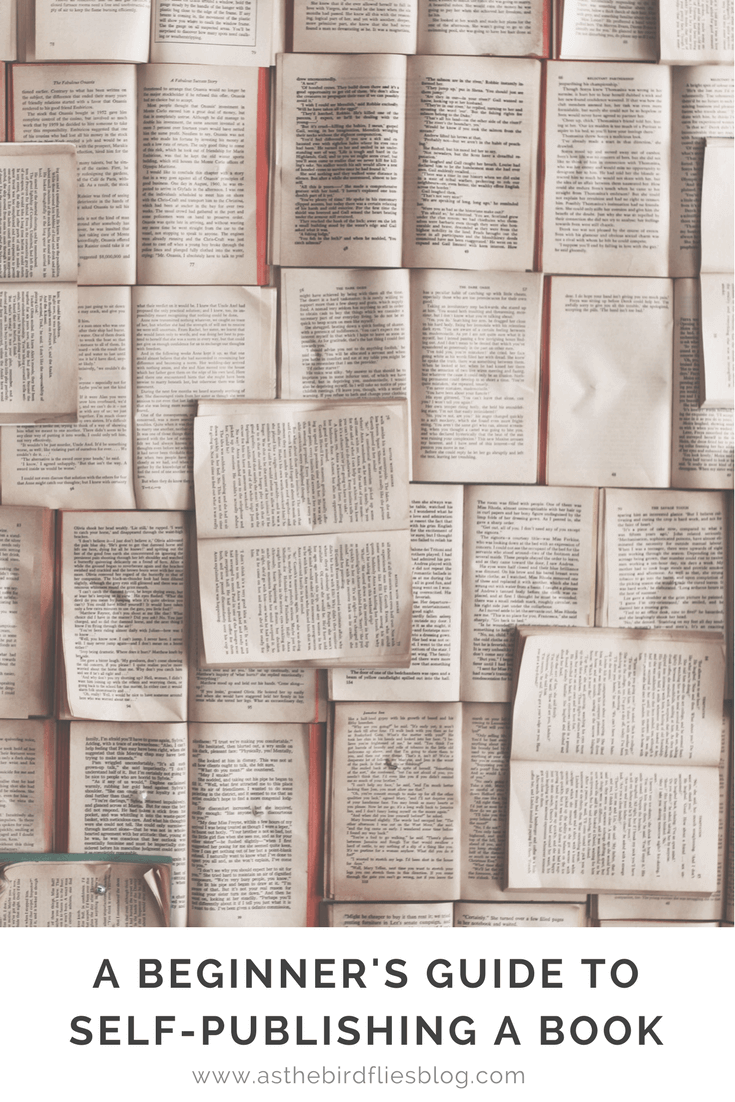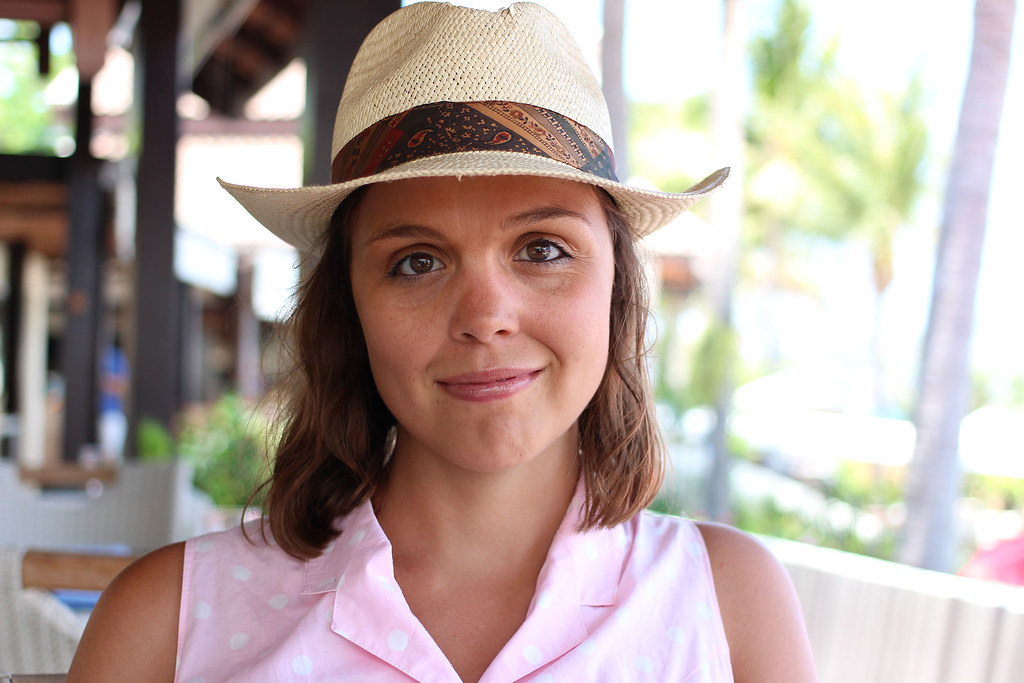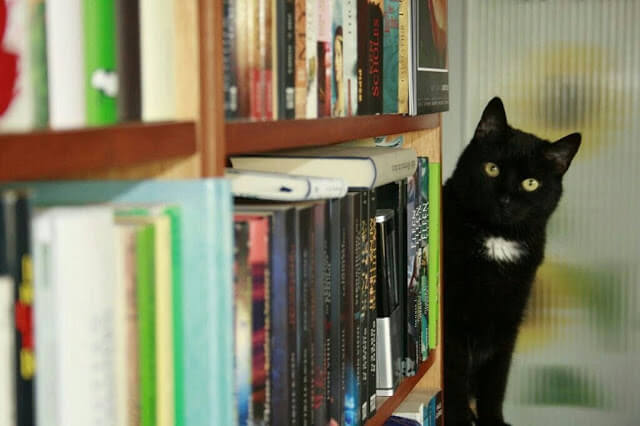Self-Publishing: Beginner's Guide & Checklists
 This is a very quick, honest and dirty beginners guide to self-publishing and being an indie author for anyone who is remotely intrigued by the idea of writing and self-publishing a book, be it non-fiction or fiction, a one-off or the beginning of a possible self-publishing career. It is based on everything I've learned after publishing my first book, from writing the first draft of my first short story collection to selling it on Amazon.
This is a very quick, honest and dirty beginners guide to self-publishing and being an indie author for anyone who is remotely intrigued by the idea of writing and self-publishing a book, be it non-fiction or fiction, a one-off or the beginning of a possible self-publishing career. It is based on everything I've learned after publishing my first book, from writing the first draft of my first short story collection to selling it on Amazon.
I've tried to keep it as simple as possible by grouping it into individual Q&A sections and including two checklists for beginners, but first I want to quickly highlight two things:
1. I'm still a beginner. I have only one book out there in the wild. They say you can't really expect any success until you have at least three books out there and I can absolutely see why that's right. In self-publishing terms I'm still learning to walk and not dribble everywhere, so you mustn't consider me an expert, at all. BUT I'm currently bursting with new information that has come from nearly two years of researching, absorbing, learning and treasuring a mountain of information on this topic. I therefore wanted to write this article on how to get started now because the process feels fresh and I know it could really help someone who's just starting to consider self-publishing and that makes it worth writing (and it makes me feel warm and fuzzy inside).
2. I believe there are two types of authors; those who want to write professionally and produce book after book after book and those who either feel they have "one book in them" and therefore publishing that book is the goal, rather than chasing the dream of "being a writer". While I certainly fall into the first category and this post is probably written from this perspective, it should still be useful for both types of writers and the advice is relevant to writers of fiction and non-fiction.
 What is self-publishing?
What is self-publishing?
Self-publishing is the process by which you write and publish a book without the involvement of an agent or "traditional" publishing house. In its most undiluted definition it refers to an author being solely responsible for the production, publishing, marketing and sales of their book, however, these days many self-publishers work with agents, collaborate with other writers or sign agreements with indie publishing houses.
While people assume that self-published authors start publishing their own books because they couldn't get a book deal (very often the case) it's not exclusively the story and recent years have seen traditionally published authors moving away from agents and editors and towards self-publishing in order to keep control of their creative processes and royalties, of course.
Is there money in self-publishing?
Ask me that in a year...
As E.L. James will tell you, yes, absolutely - though arguably her success came after she got a book deal. But of course, it's not as simple as "write a book, publish a book, sell a load of books, make a load of money". Nor is it as simple as "write a book, publish a book, sell a few books, get a book deal." This is still a very tough industry to gain traction in, whatever your goal may be.
It is also a quickly changing market that some will say has become saturated in the last few years as any would-be writer now has the opportunity to write and sell a book. This is both a good and a bad thing. It's good because it opens up the market to true talent.
The obvious downside is that not all of these self-published books are literary masterpieces and many aren't worth the electronic ink they're written in. It is therefore becoming harder and harder to "get visible" and to reach the top of the all-important best-selling lists that open doors for indie authors. It's also true that the industry is still slow to accepting self-publishers as reputable authors (again because everyone and his pet budgie can self-publish) and so self-published authors also have to battle with shaking off the stigma of being an indie author, although the US market is leading the way in changing this. While it's too early for me to comment on the earning potential of self-publishing, others like J.A. Konrath can and from the research I've done it's very clear that there are hundreds, if not thousands, of people earning decent incomes as self-publishing authors. 
Why should I self-publish?
This is a question only you can answer. But make an informed decision. Here are the key pros and cons as I see them.
The advantages of self-publishing
The benefits are obvious; greater control, greater say, greater input and ultimately output. Read David Gaughran's " Lets Get Digital" to understand just how much money a (successful and well-established) author makes from selling a single paperback versus the earning potential of self-publishers who sell ebooks, per book it's over three or four times the profit. If successful there is great earning potential for self-published authors.
There are other advantages which weren't so obvious to me at first. Traditionally published books have a shelf life unfortunately. Due to the set-up costs of these books, if they don't sell they get pulled. And authors get dropped. My self-published books have the potential to exist forever and earn me money, forever. Well, at least until I decide I've had enough of Earth.
Secondly, as I mention below, one of the best things you can do to sell a book is write and publish another one. Self-published authors have great potential to really grow their following and income simply by writing another book. This is also true of traditionally published authors, however, they normally have to follow suit of their previous works so any genre-hopping is unlikely to get the approval of their agents unless your surname is Rowling. Self-published authors can write what they want, when they want and still reach the same people or even potentially further grow their audience. Of course, a romance author's fans may not like her latest dark horror thriller, but she is not restricted creatively by a contract.
The disadvantages of self-publishing
You have to do it all.
Being creative souls, very few authors are adept at the business and marketing side of self-publishing (I'm putting my hand up!). But even professional marketers who write books admit that a lot of selling books is guess work because the market is developing and changing that quickly.
Self-publishing is therefore overwhelming, confusing, exhausting and comes with no guarantees of success. I didn't realise how much hard work it would be to self-publish a book, but if I had known this two years ago would I still have done it this way? Yes, absolutely, because what I also didn't know was how much fun it would be.
How do I self-publish a book?
It's simple. Ish. Just follow these quick and easy steps.
1. Write a book.
2. Make it really, really good.
3. No, seriously, make it something special .
4. Get at least one other person to read it as a sanity check and please, please, please save yourself a hellish grief and get it p rofessionally copyedited and proofread. Not a cheap process but see it as an investment.
5. Now decide how you're going to sell it . Ebooks are the easiest (and quickest) ways for self-publishers to make money but don't overlook print.
6. If you're going the ebook route read " Let's Get Digital" and " Let's Get Visible" by David Gaughran. This will give you the overview of Amazon and other digital publishing platforms you need.
7. It's time to get your manuscript ebook ready in the correct format/s . This means programming... *shudder*. Depending on how technically gifted you are, you may be able to try this yourself. Alternatively outsource. I'm lucky that NewMan was able to take over this side of things and I've learned that this is not a step to skip over lightly. If your ebook doesn't look right, it won't get published and even if it does but there are still minor formatting issues reviews will suffer because of this.
8. While other ebook sales platforms are growing, Amazon Kindle is still the King so get it ready as a mobi file and up on Amazon as quickly as possible. However, don't assume that none of the other platforms matter, still get it ready as an epub and as a pdf and look into publishing on Smashwords, Kobo, Barnes & Noble's Nook, Google Play Books, Books on iTunes.
9. If you're also going the print route, start reading as much of the information on CreateSpace (Amazon's print on demand service) as you can. (There are other print on demand alternatives like Lightning Source and if you want to understand how they compare listen to this podcast.) Personally, CreateSpace worked out the cheapest and easiest solution for me.
10. Now format your book for printing . Yep, that's a different process to the ebook formatting and one you may have to also outsource to make it perfect.
11. Get the pricing right. That's a topic for a whole new blog post (if not book) but in a nutshell you may need to experiment. Also look at what books similar to yours are selling (successfully) at.
12. Write a sexy blurb . My best advice for writing a blurb is to go virtual shopping on Amazon for a new book and when you read a blurb that makes you hover over the Buy Now button, ask yourself why it made you do that.
13. Get a brilliant, eye-catching, genre-expressing, clean and striking cover design . You CANNOT compromise on doing this.
14. Get the genre right . (And be prepared to play around with these if it doesn't work first time.)
15. Work on your keywords . SEO principles apply; think what your target reader would enter if they were searching for a book like yours.
16. Put your book on all your chosen platforms. And wait for it to sell.
17. Have a cup of tea.
18. Think about taking a nap.
19. Realise that no-one knows your book exists, except for you and maybe your Mum. Panic a bit because it's not going to sell.
20. Relax. And get ready to start marketing that book. Don't worry, I wrote a checklist for this too. See below...
How do I sell my self-published book?
When you self-publish a book, you automatically become responsible for the promotion and marketing of it. You can, of course, outsource this but very few have the budget for this luxury. There are also some weirdos who like marketing their books. I am not one of them, but I have found that the following 20 things should be done in order for you to have a chance at success.
1. Have an online presence. Even if it's just a Facebook page, a Twitter profile or a three page website, you need a place to be found. When I finish a book I loved (or even kinda liked) I will research the author and look for more of their work to possibly buy. Make sure your readers can find you. (Some self-published authors swear by a newsletter, and I do have one, but I think in the earliest stages of self-publishing being searchable and follow-able can be done in a simpler and easier way, if setting up a newsletter sounds a bit daunting.)
2. Be active online. Share your self-publishing journey. Write a blog. Tweet gifs of cats sleeping. Share photos of your holidays on Facebook - whatever, just be a person online. People like real people and some of the most successful authors out there (indie and traditionally published) are so popular because they are always engaging with their fans.
3. Get to grips with the market. I'll be sharing more resources soon, but in addition to the David Gaughran books I mentioned you would do well to buy Joanna Penn's book " How To Market A Book" , or alternatively get the Author 2.0 Blueprint she has available for free on her blog The Creative Penn.
4. Tell your friends and family you wrote a book. While not all of them will respond or buy a copy, the ones who do will almost certainly talk about it to their friends etc. I actually didn't send out this email until a week after Shy Feet was launched and that was an oversight on my part. Remember that word of mouth is the key so give people you know something to talk about.
5. Create a good Amazon Author profile. Any reader who is active on Amazon will check this so think of it like a welcome mat at the foot of your front door and you want to encourage them to step over the threshold and follow you.
6. Create a Goodreads Author profile and make a section of your book downloadable for free. I gained nearly 30 new readers in one day by doing this. Goodreads is heaven for self-published authors if used right, but you have to use it as a reader first and foremost. I recommend listening to this podcast to find out more.
7. Get business cards with your book cover on it. And give them out to anyone who asks you about the book.
8. Give away copies to book reviewers and book bloggers in exchange for reviews on websites, Amazon or Goodreads.
9. Offer to do author interviews or guest posts on other online platforms that you know are read by your target reader.
10. Write another book. The single best thing you can do to sell an existing book is write a new one.
11. Give away a title for free . If you are lucky enough to have a back catalogue of work or multiple titles, enroll one of the books or a short story in KDP Select (whereby you only list that title with Amazon Kindle) and you make it available for free for a limited time. While this used to prove very successful, the reach you gain can be limited but it will almost certainly boost your visibility and sales to existing titles if they are the same genre and priced appropriately.
12. Share other interesting things. Stop yourself from saturating your online presence (and real-life conversations!) with "my book this" and "my book that". Instead, share useful, entertaining, interesting or inspiring content that will get people interested in what you have to say and what you have to offer. If you've made your book easy to find, they will find it.
13. If you're selling paperback copies, buy a bundle and give away signed copies as part of a competition . (I'm going to be doing this soon!).
14. Connect with other authors on KBoards. There is a wealth of information in those forums about marketing techniques that do and don't work.
15. Wait. Sometimes time is the only thing that will sell your book.
16. Try a different platform. If nothing is shifting your books try changing where and how you sell them. See if you can try a different genre listing and also work on your book blurb or pricing. The beauty of self-publishing is that we can experiment with these things.
17. Get offline. Just because your book is being sold online doesn't mean it will be found through online searches. Talk to a local independent bookshop about stocking your book, approach book clubs, maybe your local newspaper would be interested in talking to you, ask your friends if they know any really avid readers who would like a free copy in exchange for them talking about it with their friends etc.
18. Seek advice. There is no shame in either approaching a professional for advice or reading more books and blogs on the topic of marketing. I am doing this every day. There are always more creative ways to market and sell a book, don't close yourself off from thinking just because one thing doesn't work, nothing will.
19. Stay positive. If there's one thing that won't sell your book, that's getting upset about it not selling. That and checking your KDP Reports every five seconds. Please don't do that.
20. Write another book. Not only for the same reasons as number 10, but because if you love writing as much as I do, this is possibly the only thing that will keep you sane as you do all of the above!
I hope this post helped. You can also check out "Ten Things All New Self-Publishers Must Do" which is a more in-depth look at some of the things on these two checklists.
If you'd like to pin this post to save it, here's a good image!


Frances M. Thompson
Find Frankie on Facebook, Twitter, Instagram, Pinterest, and Google+.


_x300.jpg?v=1) On Writing: The Year I Decided to Write for My Life
On Writing: The Year I Decided to Write for My Life On Writing: What Are The Different Types of Editors?
On Writing: What Are The Different Types of Editors? Preptober Tips & 100 Preptober Prompts for NaNoWriMo Prep
Preptober Tips & 100 Preptober Prompts for NaNoWriMo Prep On Writing: How to Write Every Day
On Writing: How to Write Every Day On Writing: Should You Write Fiction or Non-Fiction?
On Writing: Should You Write Fiction or Non-Fiction? About the Blog & Frankie
About the Blog & Frankie Welcome to My Amsterdam Travel Blog!
Welcome to My Amsterdam Travel Blog! Welcome to My Luxury Family Travel Blog!
Welcome to My Luxury Family Travel Blog! Welcome to My Writing Blog!
Welcome to My Writing Blog! Lover Mother Other: Poems - Out Now!
Lover Mother Other: Poems - Out Now! I Write Stories That Move You
I Write Stories That Move You Order WriteNOW Cards - Affirmation Cards for Writers
Order WriteNOW Cards - Affirmation Cards for Writers Work With Me
Work With Me